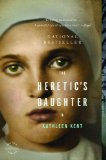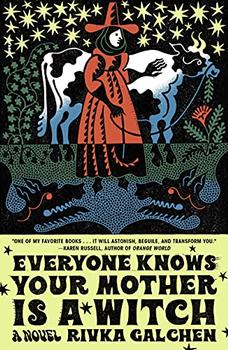Summary | Excerpt | Reading Guide | Reviews | Beyond the book | Read-Alikes | Genres & Themes | Author Bio

A Novel
by Kathleen KentMartha Carrier was one of the first women to be accused, tried and hanged as a witch in Salem, Massachusetts. The Heretic's Daughter tells her story; a haunting portrait, not just of Puritan New England, but also of one family's deep and abiding love in the face of fear and persecution.
Martha Carrier was one of the first women to be accused, tried and hanged as a witch in Salem, Massachusetts. Like her mother, young Sarah Carrier is bright and willful, openly challenging the small, brutal world in which they live. Often at odds with one another, mother and daughter are forced to stand together against the escalating hysteria of the trials and the superstitious tyranny that led to the torture and imprisonment of more than 200 people accused of witchcraft. This is the story of Martha's courageous defiance and ultimate death, as told by the daughter who survived.
Kathleen Kent is a tenth generation descendant of Martha Carrier. She paints a haunting portrait, not just of Puritan New England, but also of one family's deep and abiding love in the face of fear and persecution.
The events of 1692 are well-trod ground even for those who slept through history class. Grisly, sensational, and safely far away in time, the Salem witch trials are easily one of the most popular topics for school reports. Like many events sketched repeatedly in thumbnail fashion, the witch trials have become a caricature, a short-hand reference for fanaticism and the darker passages of America's colonial history. So it speaks to the strength of Kathleen Kent's writing that each page of The Heretic's Daughter erased more and more of the schoolbook history I thought I knew. I could not put this book down, and finished it all in one long, nerve-wracking, soul-wrenching gulp even though I knew what happened before I even cracked the cover...continued
Full Review
 (413 words)
(413 words)
(Reviewed by Lucia Silva).
From June through September of 1692, fourteen women and five men were hanged
in Salem Village on charges of witchcraft, and Martha Carrier was among them.
Nearly 150 men, women, and children were imprisoned, and an unknown number
perished while they languished in crowded jails for months until the trials were
brought to an end. One man was stoned to death in an effort to
force him to testify. Children were brought to testify against their parents, or
to admit to also being witches, and some were tortured. Many of the accused pled
guilty to save themselves from death, and were imprisoned and deprived of their
property rights.
How it all began
In the early winter of 1692, 9-year-old Betty Parris ...

If you liked The Heretic's Daughter, try these:

by Emilia Hart
Published 2024
Weaving together the stories of three extraordinary women across five centuries, Emilia Hart's Weyward is an enthralling novel of female resilience and the transformative power of the natural world.

Everyone Knows Your Mother Is a Witch
by Rivka Galchen
Published 2022
The startling, witty, highly anticipated second novel from the critically acclaimed author of Atmospheric Disturbances.
What really knocks me out is a book that, when you're all done reading, you wish the author that wrote it was a ...
Click Here to find out who said this, as well as discovering other famous literary quotes!